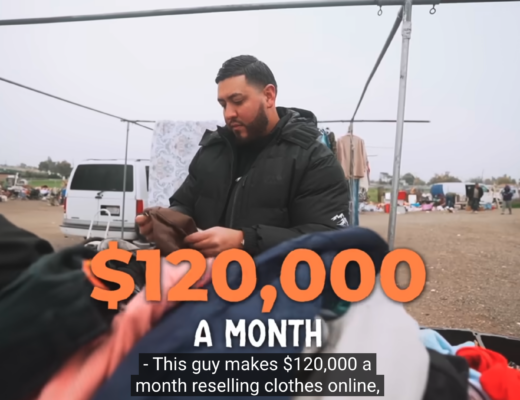I decided to move to Asia in 2008. At the time I had been working as a futures broker in Chicago’s financial district. It was the dead of January and the tropical screen saver on my desk was not quite cutting it. I needed change. Fast-forward 5 years and I am now living in-between Singapore and Hong Kong, where I have started two companies, a luxury brand for bottled tea as well as my own clothing line. When I first moved to Asia, I did not know a single person nor did I have a clue what I was going to do professionally. Thinking back I wished I had some tips that would have better prepared me for my journey. Some things did not quite work out as planned and others worked out better than I could ever imagine. I am learning everyday but what I can share with you is what NOT to do when staring a business in Asia.
Sell Hard
I am sure you watched the movie Boiler Room, or perhaps Glengarry Glen Ross. When working at the Chicago Board of Trade these were practically our training videos. I was always good at sales; however, I failed miserably for the first 6 months as a Financial Consultant in Asia. What was I doing wrong? Hard selling! Asians are particularly weary of sales people. They are more relationship driven as opposed to price driven; meaning they would rather buy from a friend at a higher price than the guy down the street they do not know at a discount.
I had to change my entire approach to gain new clients and as a result I became a master networker. I began to make contacts with people that could benefit from my services and constantly asked for referrals. I formed relationships with “introducers”, people that could connect me to my target consumer. I learned golf (I am still not a fan) and even purchased some club memberships. In order to be successful in business you have to think like your consumer.
Go Big-Go Fast
This phrase should be changed to ‘Be Strategic’. Asia is indeed a continent but that does not mean you can have a one-size fits all marketing plan for your business. For example, some of the biggest brands have failed in China thinking can tackle the whole of the market by dumping tons of cash into aggressive marketing campaigns. Groupon, Google, Ebay, Mattel, Auntie Ann’s Pretzles and Home Depot, being a few examples. Ebay even said they had planned to corner the China market in 3 months. This to me is like throwing spaghetti at a wall and hoping it sticks. China has more than 1.351 billion people speaking over 2,000 dialects; it has 22 provinces and is 3.748 million square miles in size. That is huge market and way too diverse to stick into one bucket. Many companies fail to realize that what worked at home may not work in Asia. In Southeast Asia, for example, the Chinese community thinks differently than Chinese people from China…and then it breaks down further, Chinese people from Hong Kong think and behave differently from mainland Chinese and so on. A tailored segmented approach is the best route when it comes to marketing in Asia.
Thinking Yes means Yes
In Asia ‘yes’ often times means ‘no’. They are simply too polite to blow you off. This was one of the major issues I had when starting my business: knowing when to cut the cord and try for another customer, account or relationship. Often times Asian people will say, “Call me later”, “Sounds interesting,” or “Sure lets talk about it sometime”. You have to learn to pick up on the subtle clues as what they are really saying…No.
A separate example of this would be in China. I have a beverage company there as well as a clothing line and in the beginning it was quite difficult to find a factory. Every single person I spoke with said, “Yes, I can meet your requirements, please don’t worry”…Months later only to find that they had no idea how to manufacture my goods. I suggest that if you are manufacturing anything in China, you must go there physically to with meet them and to check out the facility. Email, Skype and phone calls are not the way to do business in Asia. Negotiations must be handled in person. After all your company is a long-term venture so it makes sense that your business relationships are long-term as well.
Lose Face
Face is complicated but lets discuss. I would like to think that ‘face’ in Asia is a measure of publicly reflecting your success or failure. According to Wikipedia, “Face is a sense of worth that comes from knowing one’s status and reflects concern with the congruency between one’s performance or appearance and one’s real worth.” In summary, to ‘have face’ equates a level of social respect but to ‘lose face’ can cause much embarrassment.
During my banking days, I remember my boss ‘calling out’ my colleague on a mistake she made in front of everyone…a prime example of losing face. Never do this, always pull them aside and handle it professionally. Even if you are the president, head janitor, whatever, never let someone lose face in public. You will embarrass them and they will think you are a jerk for all of eternity.
I would like to add that “face” is the impetus for the explosion in the luxury goods sector within Asia. If only Groupon has read this article before entering the China market. Who knows, perhaps they would have fared better selling discounted luxury items. Can you imagine a Chinese person bragging at the country club about the $20 bucks they saved on baby diapers? Probably not, but you can bet that they will be showing off their brand new Cartier watch and Lambo.
Wrong Partner
Relationships or “guanxi” is the center of the Asian business model. It brings credence to the cliché, its not what you know but who you know. However, knowing the right people can result in the success or the failure of your business. Gwen Penner wrote it perfectly in her book, “Its all Chinese to Me: an overview of culture & etiquette in China”
“Guanxi refers to the benefits gained from social connections and usually extends from extended family, school friends, workmates and members of common clubs or organizations. It is custom for Chinese people to cultivate an intricate web of guanxi relationships, which may expand in a huge number of directions, and includes lifelong relationships.”
One company that has truly embraced guanxi over the years is Amway. If you’re not familiar, Amway is an American multi-level marketing company that sells a variety of products. They entered China in 1995 and a few years later almost closed up shop after the government enacted a ban on all direct selling companies. Amway, did not give up they only changed their strategy to network through retail stores in which their products were promoted by an independent sales force. China introduced new direct selling laws in 2005 and Amway was the first to get their license. Today they have reported 180,000 sales representatives, 140 stores and USD $2 billion in annual sales. That’s an impressive comeback all thanks to Guangxi.
Adria Dunn is the Founder and CEO of 108 Tea, a luxury bottled tea soon to be released in the China market, as well as Acchara Clothing.
Image Credit: Shutterstock.com





